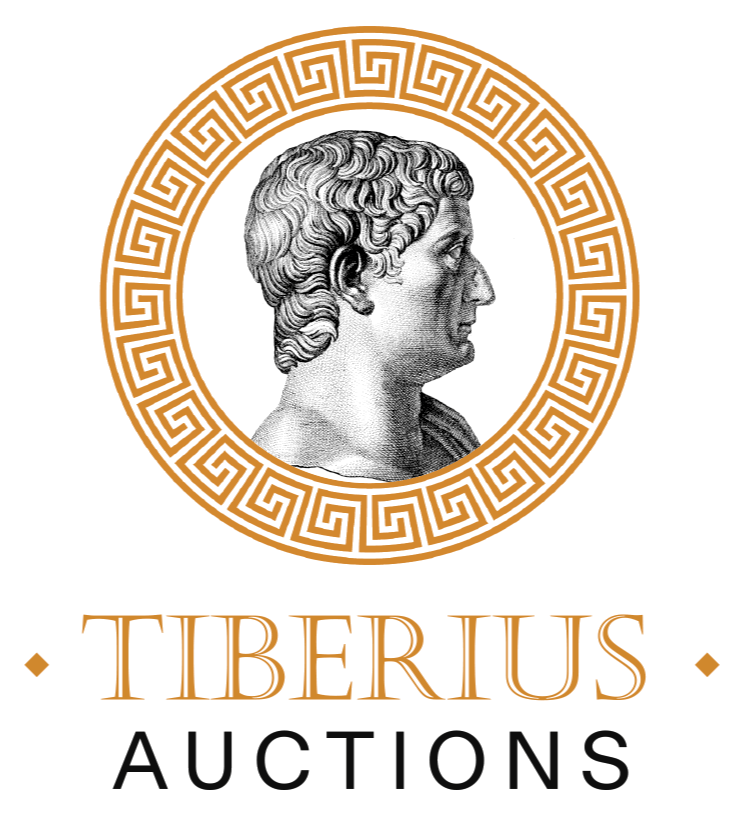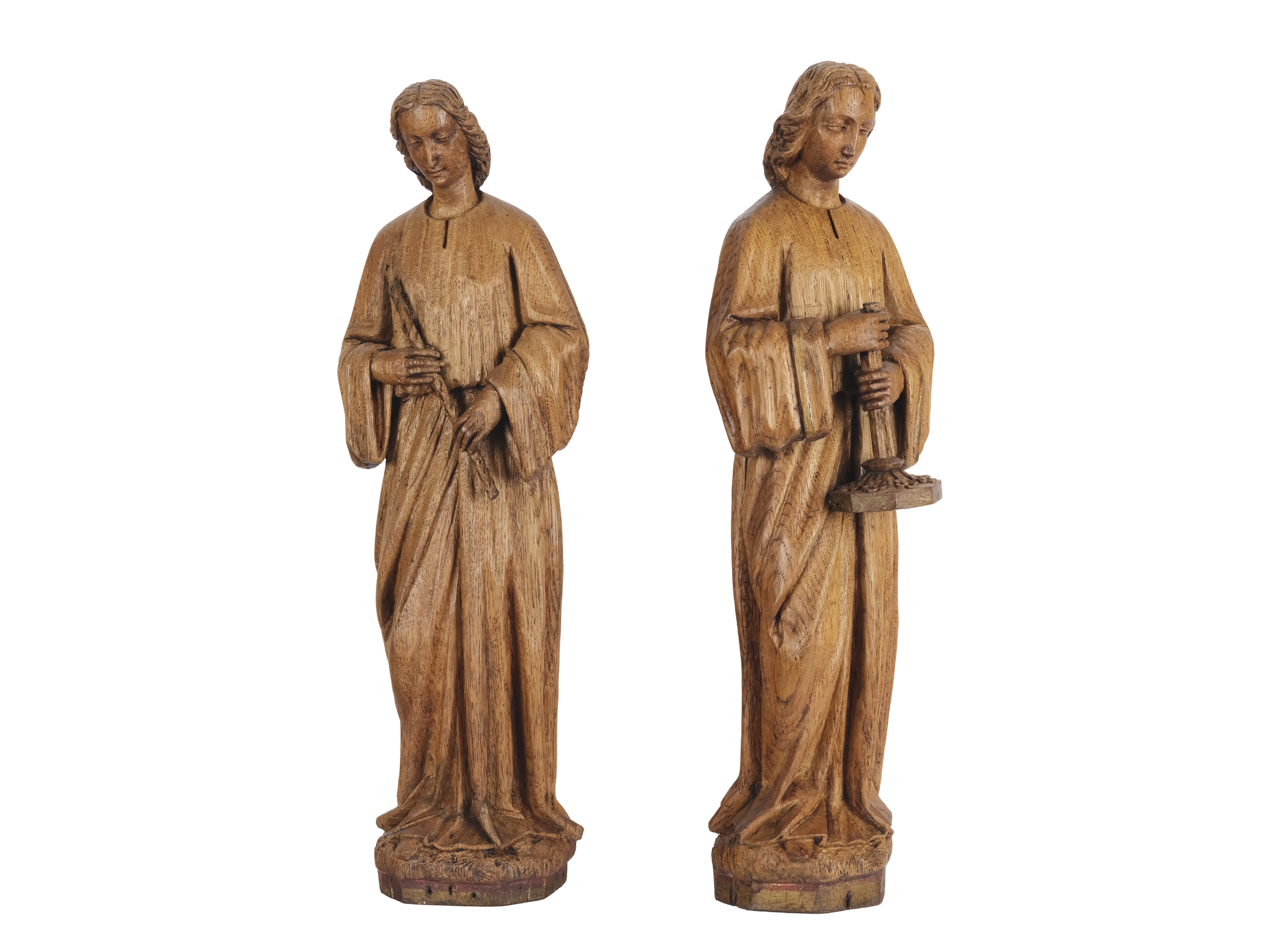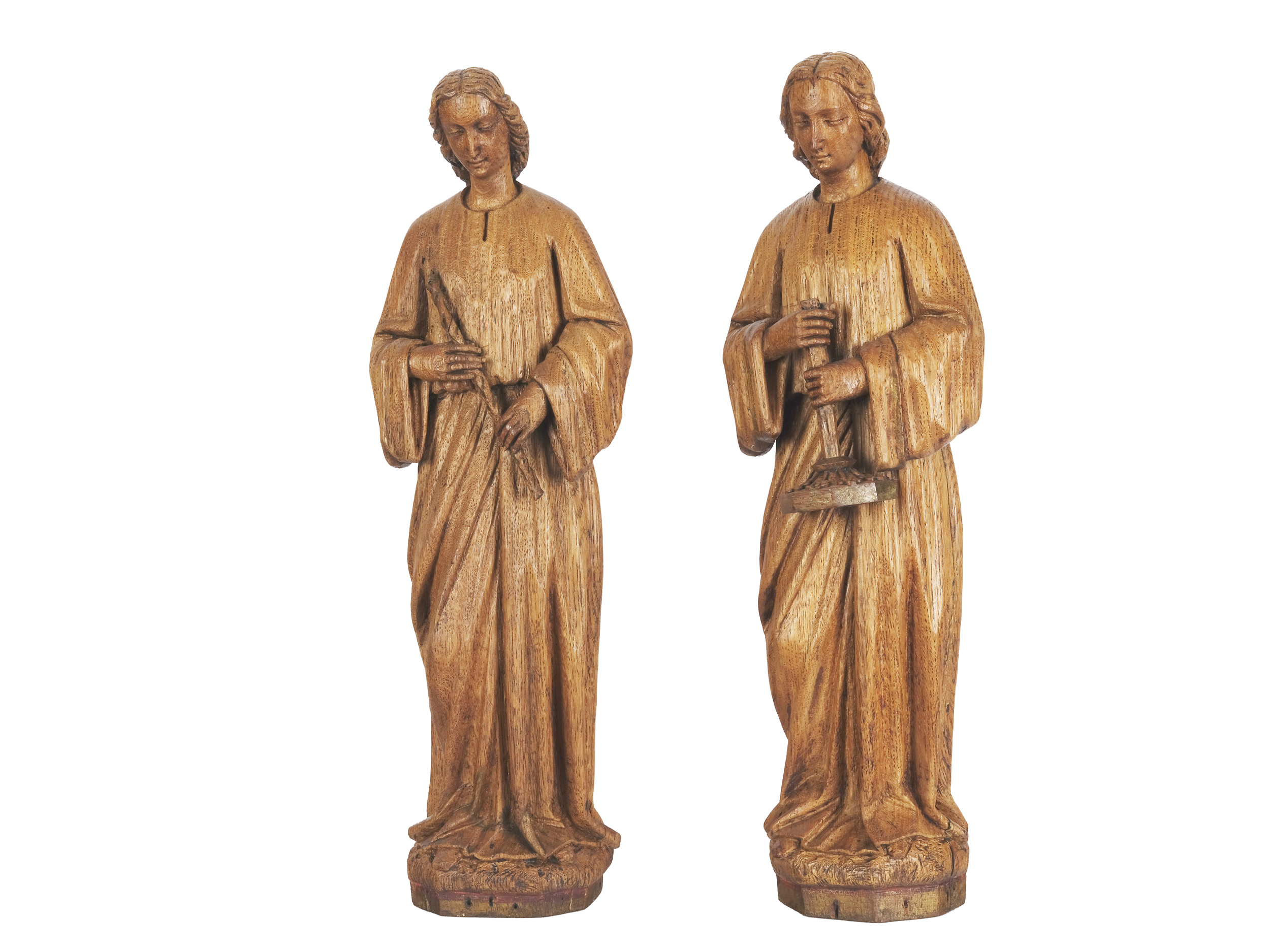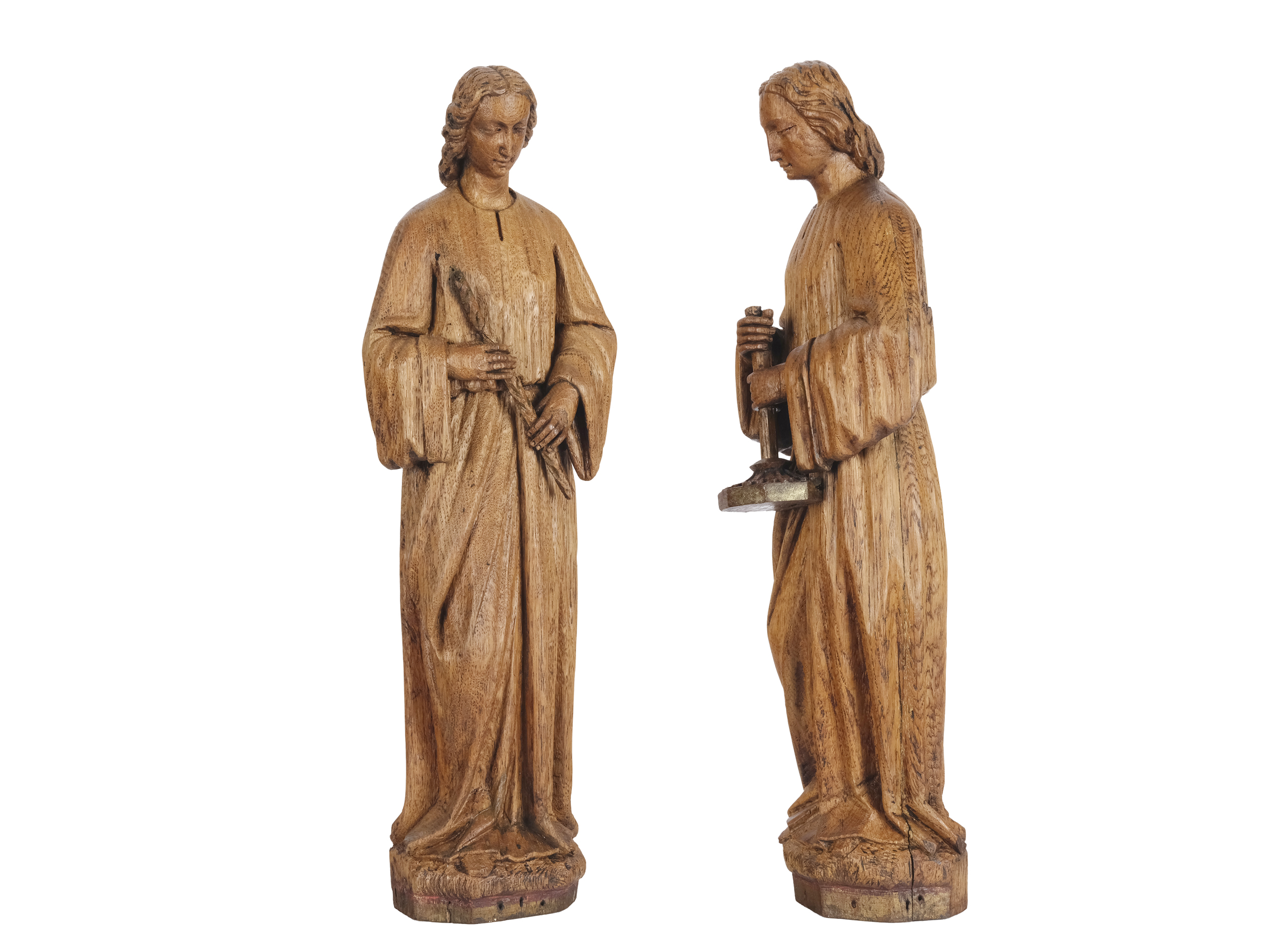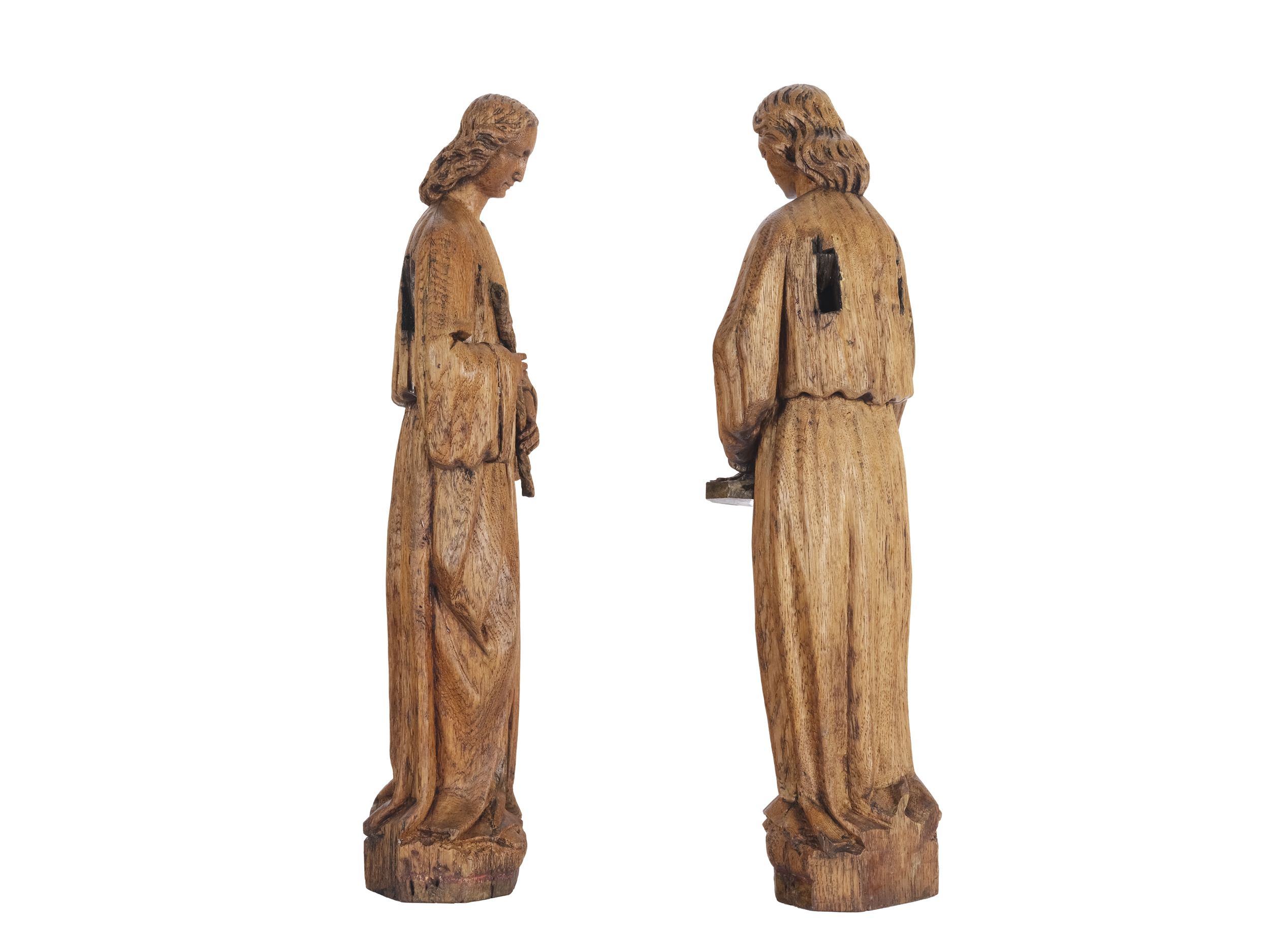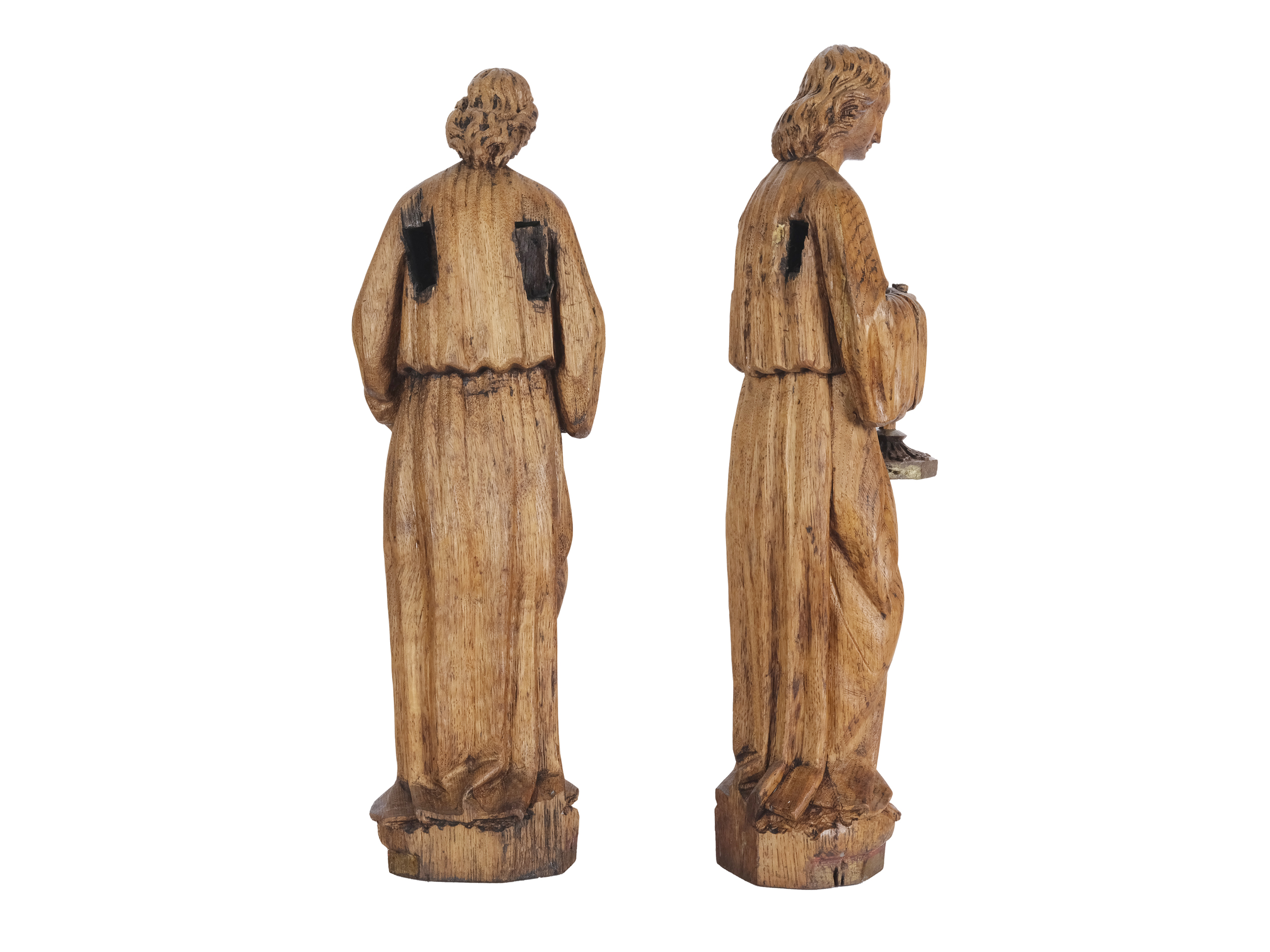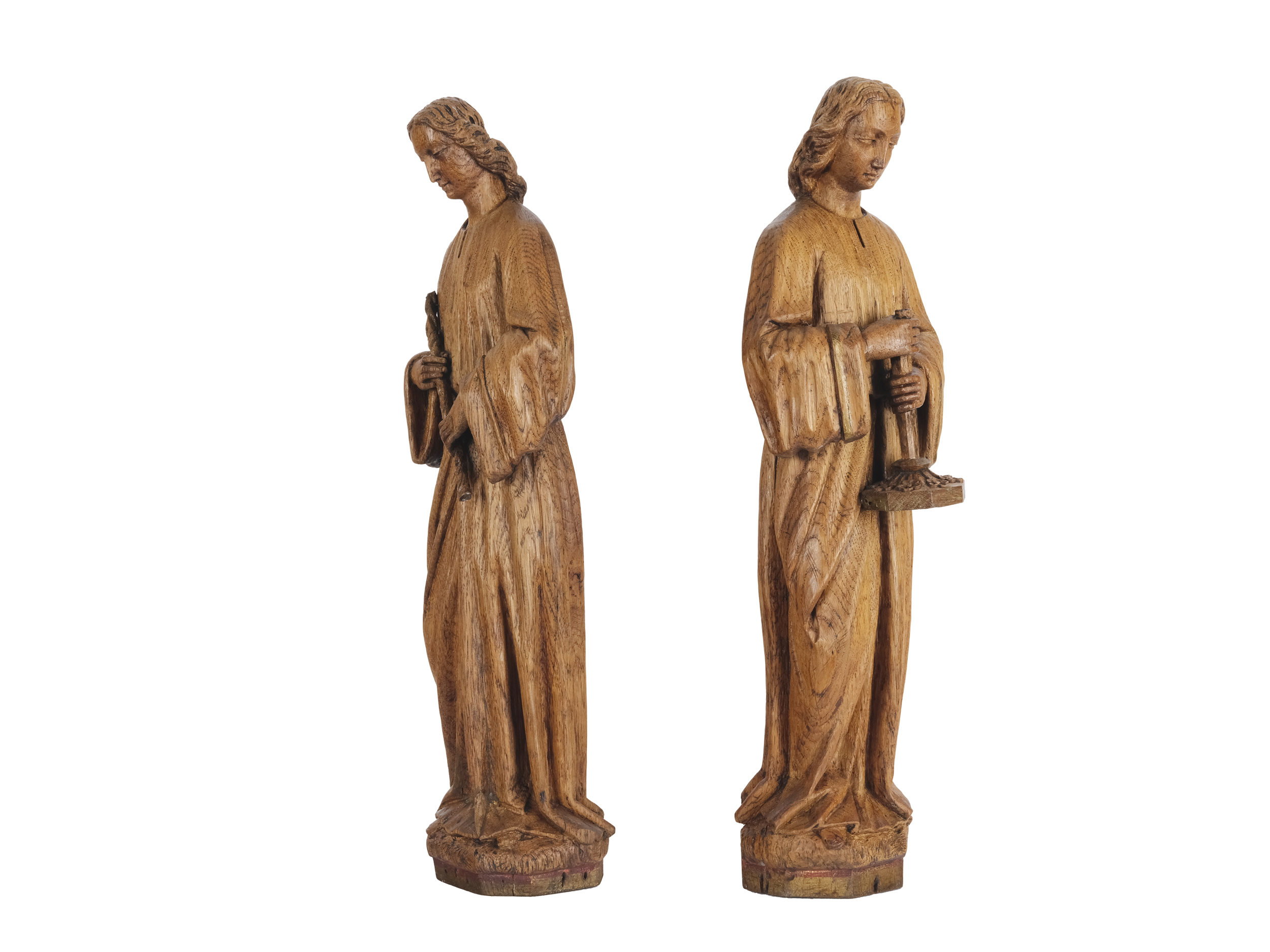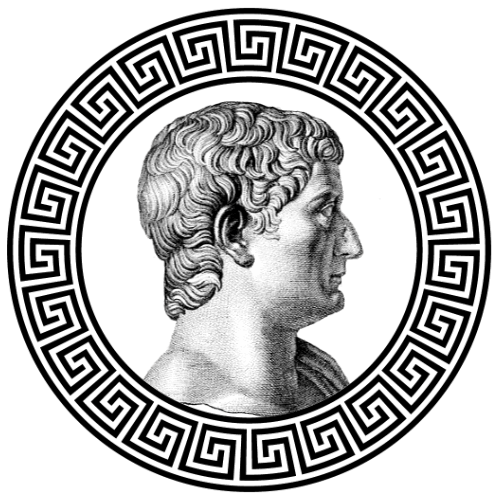Adriaen van Wesel
14th Tiberius Auction
Adriaen van Wesel
Starting price:
€ 600
- USD: 628 $
- GBP: 495 £
Estimated price: € 1.200 / 2.400
| from | to | bid increment |
|---|---|---|
| 0 € | 99 € | 5 € |
| 100 € | 199 € | 10 € |
| 200 € | 399 € | 20 € |
| 400 € | 999 € | 50 € |
| 1.000 € | 1.999 € | 100 € |
| 2.000 € | 3.999 € | 200 € |
| 4.000 € | 9.999 € | 500 € |
| 10.000 € | 19.999 € | 1.000 € |
| 20.000 € | 39.999 € | 2.000 € |
| 40.000 € | ∞ | 5.000 € |
Adriaen van Wesel
Utrecht c. 1415 – c. 1490/99 Utrecht, Succession
A pair of angels in prayer
In the style of the Flemish Renaissance around 1500
Carved oak wood
Height 40 cm
This extraordinary pair of angels consists of two elongated figures in a calm pose. The floor-length robes with wide sleeves and straight longitudinal folds reflect a timeless elegance. Stylistically, they can be attributed to the style of the Utrecht sculptor Adriaen van Wesel. Utrecht was a highly significant art center in the Middle Ages, which was characterized by the artistic works of this sculptor.
The figures are characterized by an oval head with a high forehead, framed by wavy, shoulder-length hair parted in the middle. Sharp eyebrow ridges lie above almond-shaped, only slightly open eyes with prominent eyelids, which are emphasized by the lowered gaze. The elongated nose with a straight nasal bridge sits above a mouth contorted into a slight smile, rounded off by a small chin. The androgynous figures are recognizable by the recesses for the wings, which were originally inserted separately at the back. Their garments show a rather restrained drapery.
The pair interact through their gestures and attributes: One of the angels holds the shaft of a magnificent candlestick, with a foot decorated with flowers, in front of his body and turns towards the other angel, who is carrying a long, twisted candle. They are probably in the process of fitting the candle to the candlestick and lighting it. In Christianity, the candle symbolizes life and the eternal light shows the presence of God. The candle can also be seen as an apotropaic or ominous symbol. These are not the typical candlestick angels, which themselves function as candlesticks, or the frequently depicted angels playing music. This pair of angels is performing an act of devotion, namely the lighting of a candle. In this way, the viewer is shown a sacred act, which is probably intended to encourage them to imitate and pray devoutly.
Literature:
W. Halsema-Kubes, G. Lemmens and Guido de Werd (eds.), Adriaen van Wesel: een Utrechtse beeldhouwer uit de late middeleeuwen, exhibition catalog of the Rijksmuseum, Amsterdam 1980.
R. Karrenbrock, Unknown works by the Utrecht sculptor Adriaen van Wesel, in: Zeitschrift für Kunstgeschichte 3, 1994, pp. 336-346.
J. Leeuwenberg, Een nieuw facet aan de Utrecht beeldhouwkunst IV, in: Oud Holland 75, 1960, pp. 105-205.
